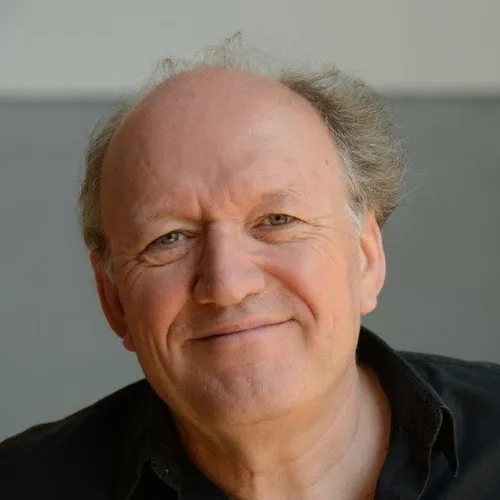
The seven short poems which make up Périple were born from a feeling, that which sometimes comes upon us, unannounced, in the heart of big cities, and which takes the shape of a rapture: just for a moment the flow of perceptions comes together in an emotive synthesis which subjugates sensation. The poem would thus be a recording or rather an impression of that. From capital to capital, from Shanghai to London, it was the experience which the Japanese call "satori," that these texts try to circumscribe and stage. May they in their turn be able to bring out the intensity of the experience which lies within them.
Tanguy Viel
After a two-year collaboration during the creation of the opera Les Pigeons d'Argile (2014), I maintained a very strong intellectual, artistic and friendly relationship with Tanguy Viel.
Composed during lockdown, while any travel was impossible, Périple takes the form of a sequence of seven short poems which speak about great cities.
These seven "poems" - Austerlitz, Shanghai, Berlin, New York, London, Rome and Tokyo - could be seen as the pages of a travel diary. The music, without illustrating the situations recounted in these cities, follows the formal structure of the text very closely and tries to generate the impressions which the author felt there. By turns it is enveloping and fluid, energetic, noisy, rhythmic etc..
The voice is treated in such a way that the text remains most often understandable, but it also happens that it often mixes into the instrumental texture around it, the understanding of the text becoming momentarily disrupted. Furthermore, at those moments when the text is most clear, you can observe the use of a form of madrigalism, as in Berlin (the metro, glass reptile), London (the thickness of the fog), Rome (the frozen water), etc..
While the piece is composed from spectral harmonic objects, the use of tempered instruments, such as the accordion, vibraphone and marimba, led me to use only a few micro-intervals with the bass clarinet. The search for an identifiable colour for the whole piece was not done by "synthesising" frequencies as I usually do, but by working on the fusion of the accordion with the bass clarinet and the percussion. Furthermore, I wanted to use the accordion across its whole register and not confine it to the extremes of its register, as is often the case when you want to give it an "electronic" character. Here, the accordion is exploited across the whole spectrum, but with the intention to make it merge as much as possible with the bass clarinet and the percussion, whether in parallels (fluid melismas or homorhythmic rhythmic groups), attacks (bass clarinet slaps), resonances (keyboards, Thai gongs) etc..
The piece, unconducted, represents a challenge for the musicians, particularly in the three interludes which could constitute a small piece in three movements. These three interludes can be considered to be comments taking their material from the melismas of Shanghai and Berlin, for example, the misty sounds of London and, more broadly, the general rhythm of the seven poems.
Philippe Hurel